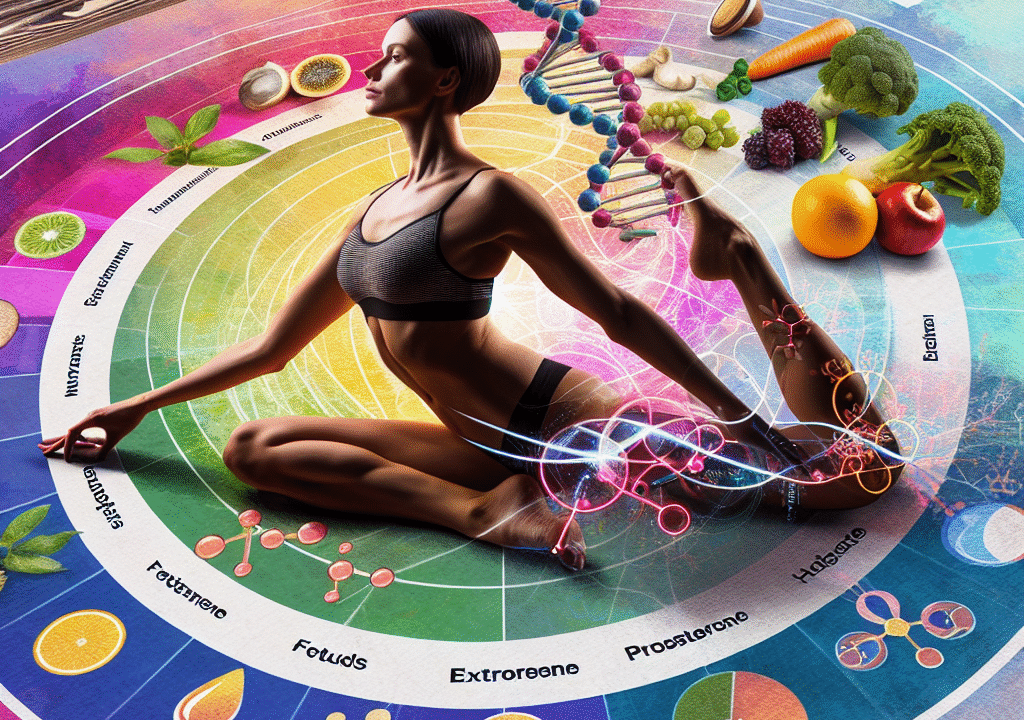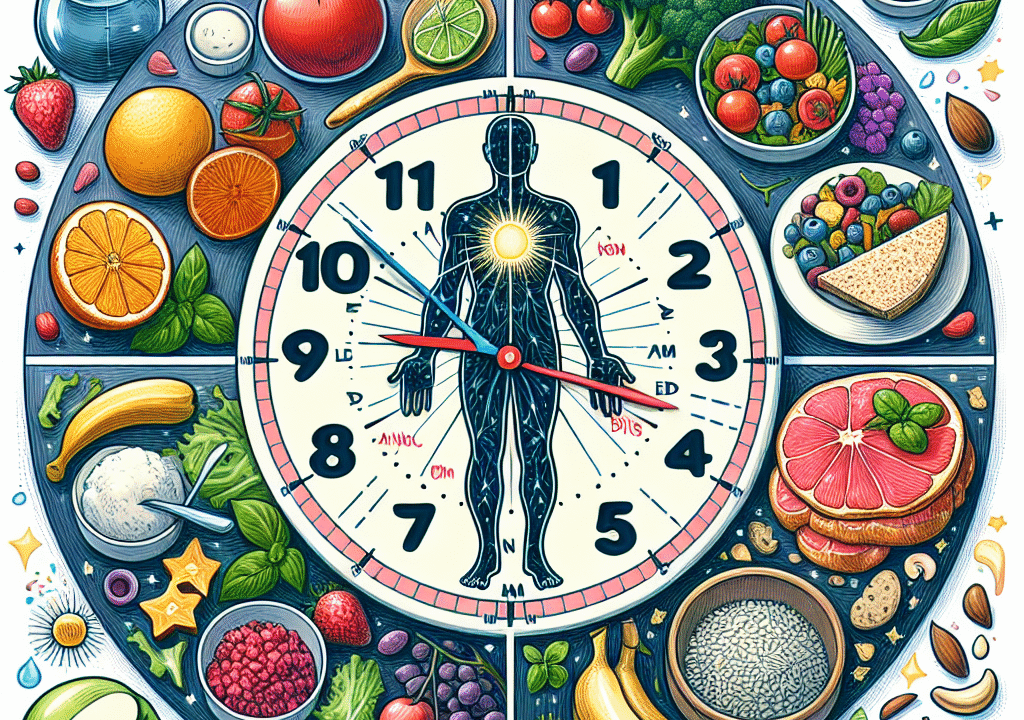Introducing the Micronutrient Map: A Plant-Based Nutrition Guide
As more individuals choose a plant-based lifestyle for its health, environmental, and ethical advantages, maintaining proper nourishment becomes essential. A well-structured plant-based diet can meet nearly all of your nutritional needs, but it requires attention—particularly when it comes to micronutrients.
This is where the Micronutrient Map comes in—your essential guide to help prevent common deficiencies and empower your plant-powered journey with confidence and clarity.
Why Micronutrients Are Crucial to Your Health
Micronutrients—vitamins and minerals needed in small amounts—play critical roles in immunity, energy production, brain function, and bone development. According to the World Health Organization, over two billion people worldwide suffer from some form of micronutrient deficiency, often undiagnosed.
While plant-based diets provide sufficient macronutrients like carbohydrates, protein, and healthy fats, certain micronutrients can be more challenging to obtain due to their limited bioavailability in plant foods.
As Dr. Ginny Messina, RD and co-author of “Vegan for Life,” explains, optimal nutrition on a vegan diet isn’t about being perfect—it’s about learning to meet your needs with a combination of whole foods, fortified products, and supplements.
Your Plant-Based Micronutrient Checklist
Below is a comprehensive look at the most commonly at-risk nutrients in plant-based diets, along with practical tips to help you stay nourished.
Vitamin B12: Essential for Nerve and Cognitive Health
Vitamin B12 supports nerve function, red blood cell production, and DNA synthesis. A deficiency can result in fatigue, memory issues, and long-term nerve damage.
Because B12 is not naturally found in plant foods, vegans are particularly at risk. The National Institutes of Health reports that up to 92 percent of vegans may have low B12 levels if they aren’t supplementing properly.
How to get sufficient vitamin B12 on a vegan diet:
– Consume fortified foods such as plant-based milks, nutritional yeast, and breakfast cereals.
– Use high-quality supplements containing cyanocobalamin or methylcobalamin.
Recommended daily intake: 2.4 mcg for adults
Iron: For Energy and Oxygen Transport
Iron plays a crucial role in oxygen transport and energy production. Plant-based iron (non-heme) is less readily absorbed by the body compared to heme iron from animal sources. However, absorption can be significantly improved with smart food pairings.
Tips to enhance iron absorption:
– Combine iron-rich foods—like lentils, beans, and tofu—with sources of vitamin C such as oranges, bell peppers, and tomatoes.
– Limit tea and coffee during meals, as they contain tannins that can hinder iron absorption.
Top plant-based sources of iron:
– Lentils
– Tofu (especially firm varieties)
– Pumpkin seeds
– Blackstrap molasses (1 tablespoon contains approximately 3.5 mg)
Recommended intake:
– Adult Women (ages 19–50): 18 mg/day
– Adult Men: 8 mg/day
Omega-3 Fatty Acids: Vital for Brain and Heart Health
Omega-3 fatty acids, particularly EPA and DHA, support brain function, heart health, and eye health. While plant foods mostly provide ALA, a precursor to EPA and DHA, the body’s conversion rate can be as low as 5–10%.
Sources of ALA in plant-based diets:
– Ground flaxseeds
– Chia seeds
– Hemp seeds
– Walnuts
For optimal support, consider taking a vegan algae-based supplement that provides EPA and DHA directly.
Recommended intake: 250–500 mg/day of EPA + DHA
Calcium: Building Strong Bones from Plants
Calcium strengthens bones, regulates muscles, and supports nerve signaling. While often associated with dairy, many plant-based sources provide sufficient calcium if chosen wisely.
Top plant-based calcium-rich foods:
– Fortified plant milks (aim for 300 mg per cup)
– Calcium-set tofu
– Greens like kale, bok choy, and collard greens
– Almonds and tahini
Note: Spinach and beet greens are high in oxalates, which can inhibit calcium absorption.
Recommended intake: 1,000 mg/day for adults ages 19–50
Vitamin D: Your Sunshine-Driven Hormone
Vitamin D supports immune function, mood, and calcium absorption. It’s challenging to get enough from food alone, particularly in winter or in northern latitudes.
Ways to maintain healthy vitamin D levels:
– Get regular sun exposure (10–30 minutes a few times per week, depending on skin type and location)
– Take a vegan vitamin D2 or lichen-based D3 supplement
Recommended daily intake: 600–800 IU (with higher amounts potentially needed based on individual needs)
Zinc: Enhancing Immune Defense and Wound Healing
Zinc is essential for immune function, tissue repair, and enzymatic reactions. While found in nuts, seeds, and legumes, its absorption from plant foods can be hindered by phytates.
Strategies to improve zinc absorption:
– Soak, sprout, or ferment legumes and whole grains to reduce phytate content and increase bioavailability.
Top plant-based sources of zinc:
– Pumpkin seeds
– Cashews
– Chickpeas
– Whole grains like quinoa and oats
Recommended intake:
– Adult Women: 8 mg/day
– Adult Men: 11 mg/day
Iodine: Supporting Healthy Thyroid Function
Iodine is vital for thyroid hormone production, which affects metabolism, energy, and overall hormonal balance. Unfortunately, its content in plant foods varies widely due to soil depletion and geographic differences.
Reliable iodine sources for those on plant-based diets:
– Iodized salt (check packaging to ensure it’s truly iodized)
– Seaweed such as nori and kelp (enjoy in moderation)
– Vegan iodine supplements (150 mcg/day)
A study from the Journal of Clinical Endocrinology & Metabolism found that 80% of vegans had iodine deficiencies compared to 25% of those on an omnivorous diet.
Leveraging Fortified Foods and Supplements
Fortified foods are valuable tools in achieving nutritional balance. Many cereals, plant milks, and nutritional yeasts are enriched with B12, calcium, vitamin D, and more.
Supplements are recommended not as replacements for food, but as a reliable way to fill common nutritional gaps. Experts consistently recommend supplementing nutrients like B12 and DHA on a vegan diet.
Explore high-quality supplement options from trusted online providers to ensure you’re getting what your body needs every day.
Monitoring Your Health: Testing and Listening to Your Body
Because nutrient absorption varies by individual, even those with ideal diets should monitor their health with regular blood tests. Aim to get tested every 6–12 months for vitamin B12, vitamin D, iron levels, and thyroid markers.
Dr. Michael Greger of NutritionFacts.org advises, “What gets measured gets managed. Regular testing allows you to stay ahead of deficiencies and make adjustments before symptoms develop.”
Empower Your Plant-Based Journey with Knowledge
Choosing a plant-based lifestyle is a meaningful commitment to your health, the planet, and animals. But to truly thrive, you need to stay informed, properly fueled, and attentive to your body’s needs.
Using the Micronutrient Map as a practical tool can help you increase energy, maintain mental clarity, and enjoy long-term wellness. Optimal nourishment comes not from what you eliminate—but what you purposefully include.
A Final Word: Fuel with Intention
Going vegan isn’t just about what you give up—it’s about what you choose to embrace. Add diversity to your meals, stay consistent with supplements when needed, and schedule regular health check-ins.
Bookmark this Micronutrient Map as a resource for every stage of your plant-based journey. With knowledge as your guide, you can nourish your body with intention and thrive with confidence.
Let fruits fuel your body, greens guide your choices, and information illuminate your path.
References and Resources
– National Institutes of Health – Office of Dietary Supplements: https://ods.od.nih.gov/
– World Health Organization – Micronutrient Deficiencies: https://www.who.int/
– Journal of Clinical Endocrinology & Metabolism, Volume 96, Issue 8
– “Vegan for Life” by Virginia Messina and Jack Norris
– Institute of Medicine – Dietary Reference Intakes
– NutritionFacts.org by Dr. Michael Greger
– Physicians Committee for Responsible Medicine – https://pcrm.org
– Learn more about reliable supplements at edrugstore.com
– Vegan nutrient guides from VeganHealth.org
Stay informed, stay balanced, and stay thriving on your plant-based path.


